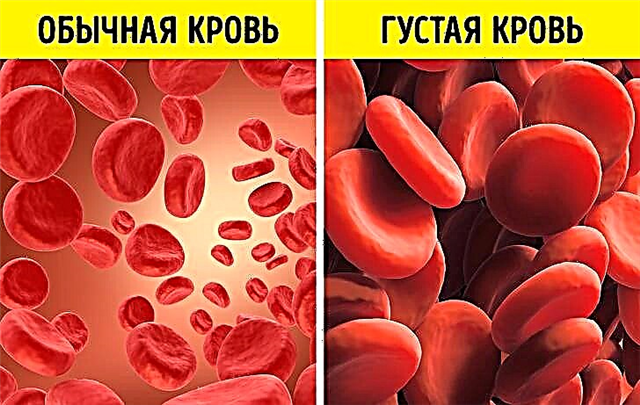
Implantation is the process of introducing a fertilized egg into the endometrium of the uterus. If this process goes wrong or does not take place at all, pregnancy will not occur. Therefore, women who have been waiting for and planning pregnancy for a long time try to catch the subtlest nuances of sensations in order to understand whether this happened or not.

Timing and process
Conception took place. But this is not enough. It is necessary for the fertilized egg to successfully get from the fallopian tube, where the meeting with the sperm took place, to the uterine cavity, where the baby will grow and develop throughout pregnancy. In this way, the zygote, into which the oocyte has turned after fertilization, is sent on the first day after conception, and it usually takes from 3 to 5 days.
Then another 1-2 days, and sometimes longer, the ovum is in free swimming in the uterine cavity. It feeds on those beneficial substances that are contained in the uterine fluid, and patiently waits until it is "nailed" to the wall of the uterus.
If this does not happen, after 4-5 days the ovum will die and come out with the next menstruation, the woman may not even guess that she was "almost pregnant."


The zygote passes the morula stage and becomes a blastocyst. It has two shells. The internal one will then become the basis for the formation of the child's internal organs, and the external one is responsible for the implantation process, and then for the process of placenta formation.
The blastocyst adheres to the wall of the uterus. Implantation begins from this moment. Average time - 7-8 days after ovulation... But there is a later or earlier implantation. The very process of blastocyst penetration into the uterine wall lasts about 40 hours.
Having adhered to the endometrium, the outer layer of the blastocyst is transformed into thin villi-conductors. At first, they produce enzyme substances that dissolve endometrial cells. In the resulting space, the ovum buries itself as deeply as possible. Then the villi connect to the blood vessels and form the chorion.
At the end of implantation, the embryo begins to receive nutrients from the mother's blood.
Pregnancy has come, but a woman learns about this only when a sufficient amount of a special hormone produced by chorionic cells - hCG - accumulates in the blood and urine.
This will happen immediately before or immediately after a delay in menstruation, that is, about a week after implantation.

Feelings and signs
Officially in medicine, it is believed that a woman does not experience any special signs and sensations during implantation. The process is so microscopic, cellular that it is almost impossible to feel at least something. However, the reviews of women clearly show that many managed to feel the implantation, and for a number of expectant mothers it was quite painful.
Not everyone feels implantation. It depends on individual sensitivity, primarily to changes in hormonal levels.
Most often, women describe their feelings like this:
- the lower back hurts a little, as before menstruation (but until menstruation is about a week, and therefore few people pay attention to these sipping weak, barely distinguishable pains);
- the lower abdomen may hurt, but there is no severe pain, only minor aching discomforts that last about two days and pass;

- the temperature rises slightly (not higher than 37.0 with a little, and therefore a woman may also not pay attention to this);
- a headache, a sore throat, a cough and chills may appear - immunity during implantation is sharply reduced to give a chance for the ovum not to be rejected by vigilant immune cells, and usually women perceive these sensations as a signal that they just caught a cold or caught a virus;
- drowsiness increases, the woman feels overwhelmed, tired, a slight anxious feeling may appear;
- many say that they felt a faint metallic taste in their mouth - medicine does not know how to explain this.

More or less reliable signs include only the so-called implantation bleeding.
In the process of introducing the ovum into the endometrial layer, enzymes dissolve the cells of the inner lining of the uterus, and the released blood can come out. There is not much blood, because it is not the veins or arteries that are damaged, but the smallest blood vessels of the human body - the capillaries.
Usually, women react with bewilderment - there is still a week before menstruation, or even more, and write off the appearance of bloody spotting as a failure in the cycle. but implantation discharge has nothing to do with menstruation, and after a day there is no trace of them.
This symptom does not appear in all women, and therefore it is not worth relying on it as an early diagnosis of pregnancy. This is one of the medical mysteries, the mechanisms of which scientists have not yet been able to explain.
One thing is known for certain - such bleeding in no way affects the development of the fetus, the condition of the mother, the pregnancy itself, and does not affect the course of childbirth.

If a woman regularly measures basal temperature, then at 40 hours of implantation, she can pay attention to the rise of the thermometer to 37.4-37.5 degrees.
If the temperature is higher and there is pain, then we are talking about an inflammatory process, and not about embryo implantation.
The hCG level rises every two days, doubling its values. That is why, theoretically, and again, not everyone can have the first changes in the body and well-being caused by a change in the balance of hormones after 4-6 days.
These signs may include mild nausea, dizziness, bouts of weakness, increased fatigue, a rise in temperature in the evening to subfebrile values. Many women describe that during these periods, their mood began to change dramatically - from sadness to joy, from annoyance to anger. Also, women note that they became more sentimental and somehow they especially treated the touching photos of babies, kittens, puppies and other "cuties" if they met them on the Internet.

Useful Tips
If a woman really wants to get pregnant and looks for signs of pregnancy every day after ovulation, then she is in a state of stress. In this state, stress hormones are produced - adrenaline and cortisone. They partially block the production of sex hormones.
Implantation may not take place due to the lowered progesterone level. So the best advice is to relax. This will increase the chances of a successful implantation.
It is noteworthy that weight loss before conception increases the likelihood of implantation by almost 45%. To do this, it is enough to lose weight by only 5% of body weight while being overweight. Also, a woman who is expecting pregnancy, like a miracle, is not advised to drink coffee - caffeine negatively affects the level of sex hormones.

Experts advise women who assume that they may have become pregnant, in the second half of the menstrual cycle, to eat more foods with a high protein content - meat, fish, dairy products. It also increases the likelihood of successful insertion of the ovum into the uterine wall.
For information on how embryo implantation occurs, see the next video.



